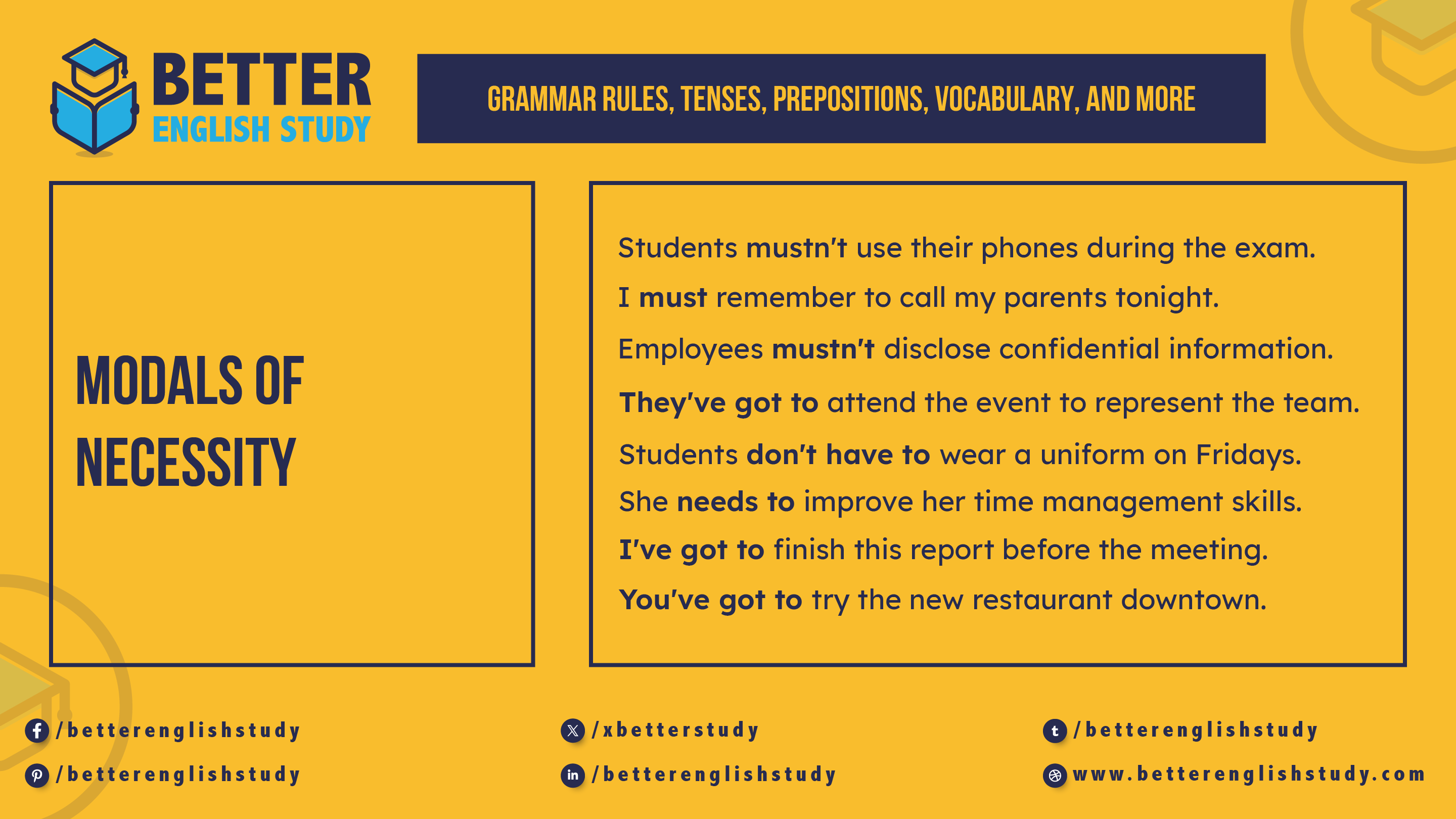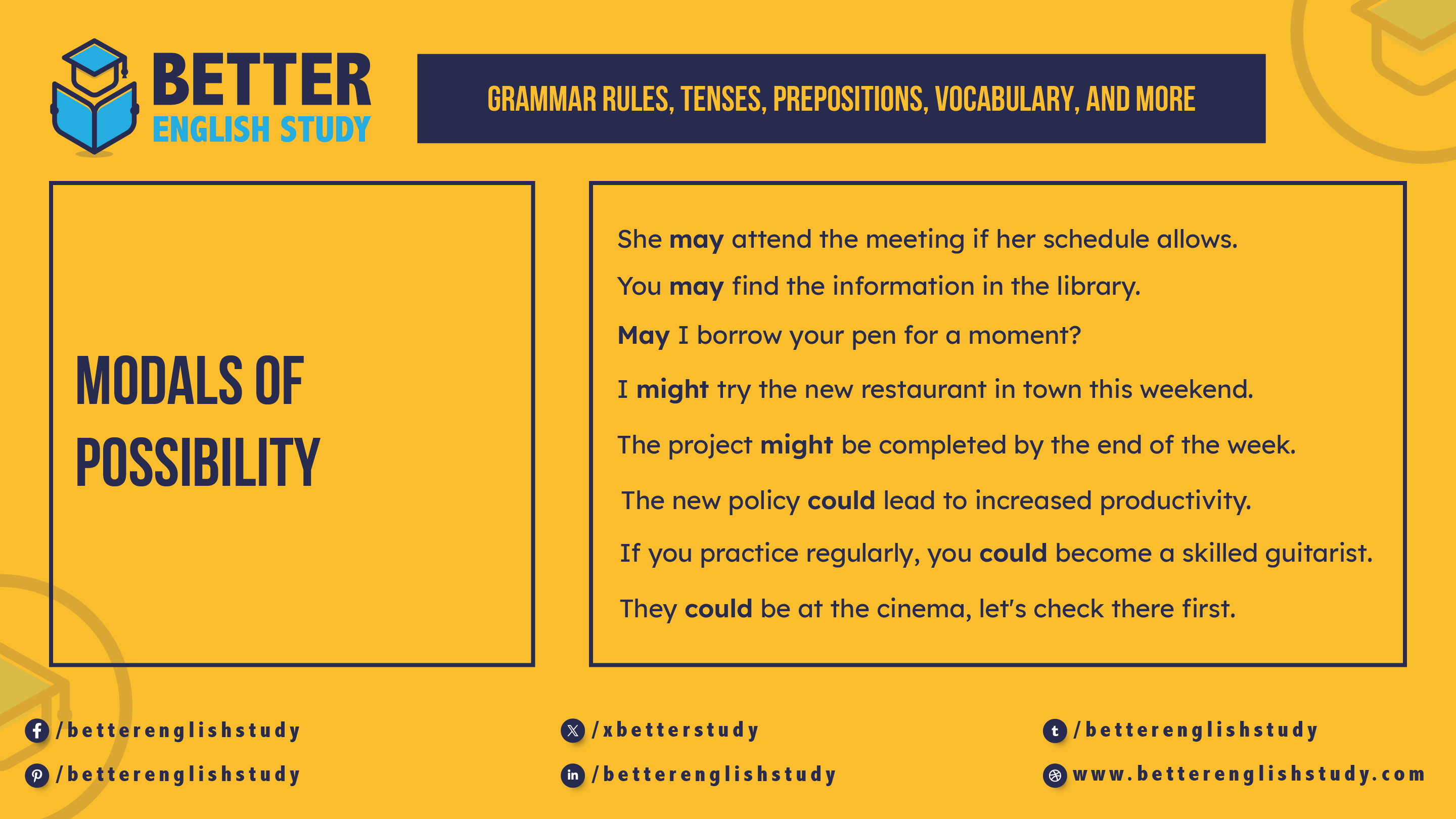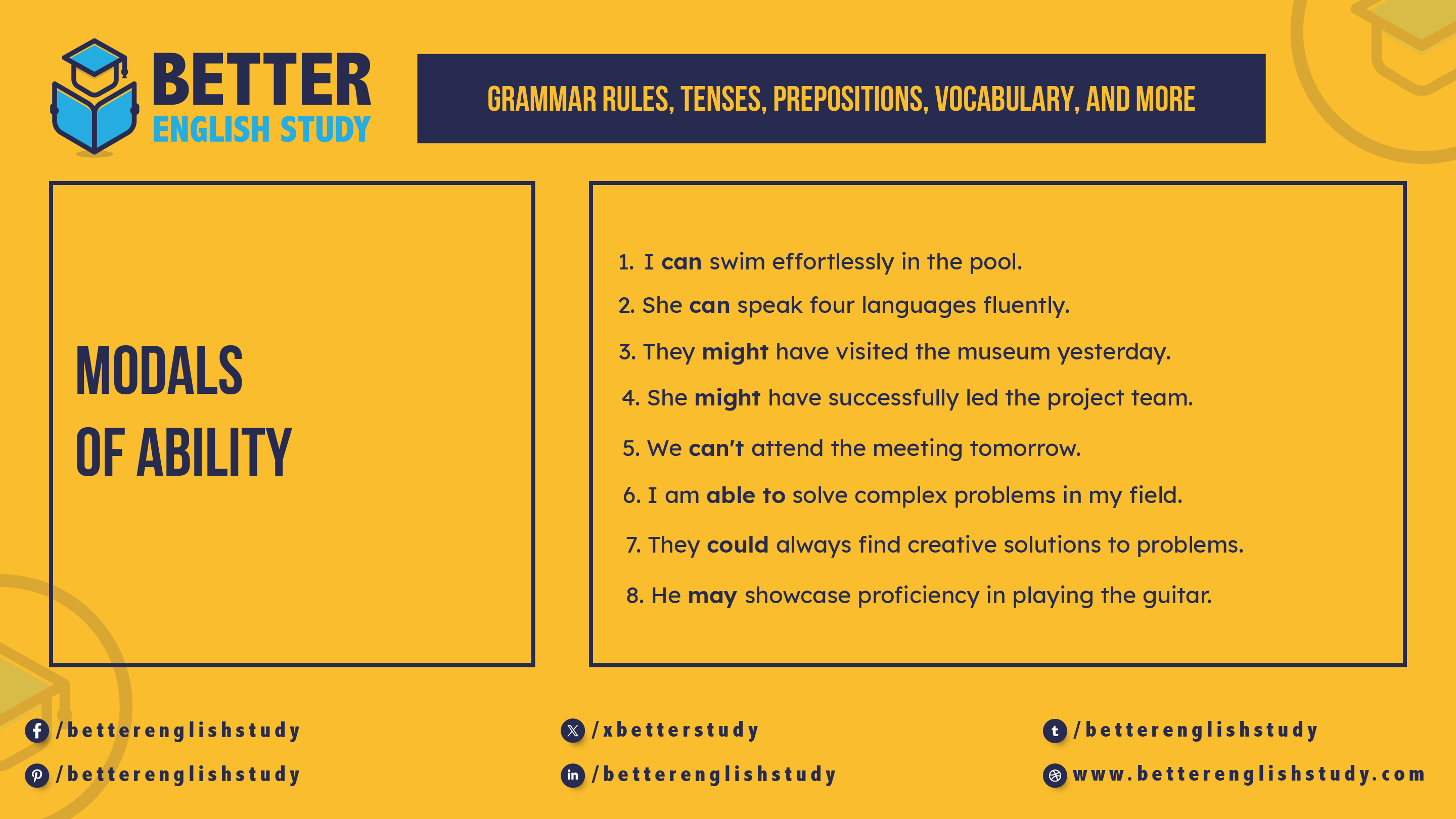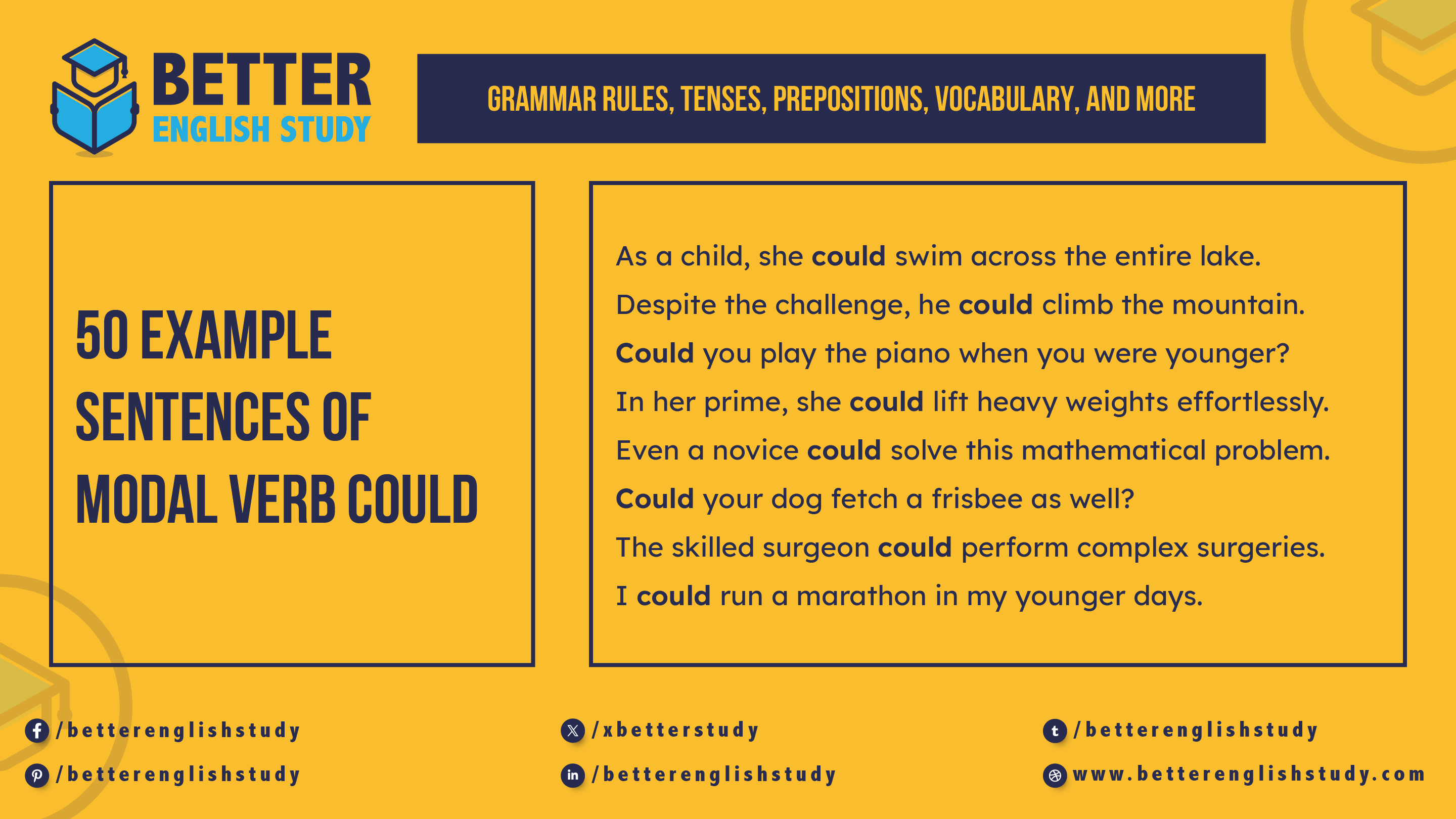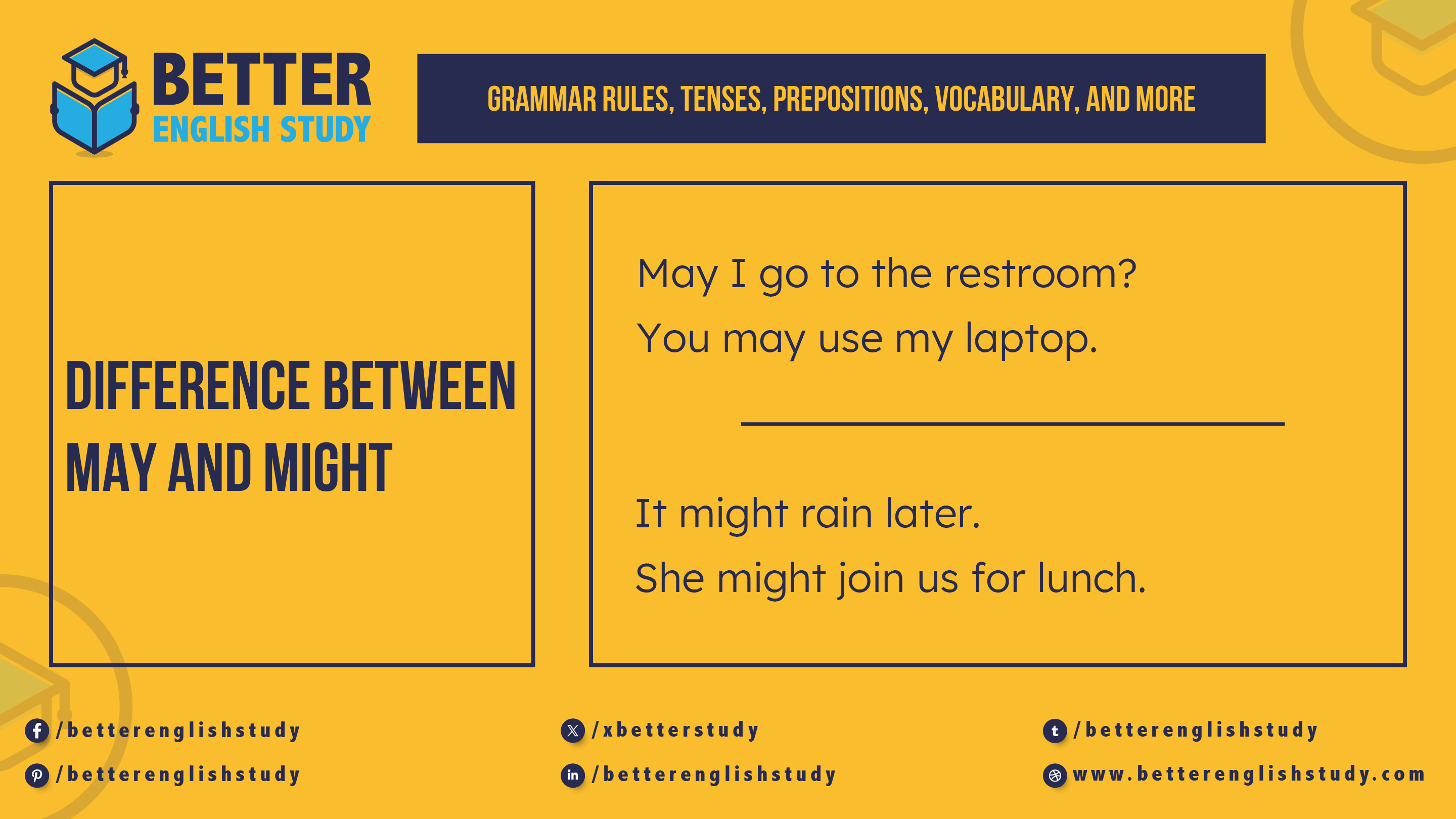Modals of Necessity – Must, Have To, Need To, and Have Got To
In the intricate tapestry of English grammar, modals serve as indispensable threads, weaving meaning, and nuance into our expressions. When it comes to conveying necessity, modals play a pivotal role in articulating obligations, requirements, and essential actions. In this exploration, we will delve into modals of necessity—’must’ and ‘mustn’t,’ ‘have to’ and ‘don’t have to,’ …

